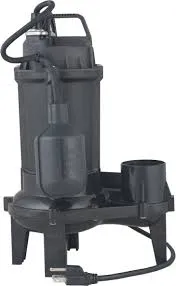English
- Afrikaans
- Albanian
- Amharic
- Arabic
- Armenian
- Azerbaijani
- Basque
- Belarusian
- Bengali
- Bosnian
- Bulgarian
- Catalan
- Cebuano
- Corsican
- Croatian
- Czech
- Danish
- Dutch
- English
- Esperanto
- Estonian
- Finnish
- French
- Frisian
- Galician
- Georgian
- German
- Greek
- Gujarati
- Haitian Creole
- hausa
- hawaiian
- Hebrew
- Hindi
- Miao
- Hungarian
- Icelandic
- igbo
- Indonesian
- irish
- Italian
- Japanese
- Javanese
- Kannada
- kazakh
- Khmer
- Rwandese
- Korean
- Kurdish
- Kyrgyz
- Lao
- Latin
- Latvian
- Lithuanian
- Luxembourgish
- Macedonian
- Malgashi
- Malay
- Malayalam
- Maltese
- Maori
- Marathi
- Mongolian
- Myanmar
- Nepali
- Norwegian
- Norwegian
- Occitan
- Pashto
- Persian
- Polish
- Portuguese
- Punjabi
- Romanian
- Russian
- Samoan
- Scottish Gaelic
- Serbian
- Sesotho
- Shona
- Sindhi
- Sinhala
- Slovak
- Slovenian
- Somali
- Spanish
- Sundanese
- Swahili
- Swedish
- Tagalog
- Tajik
- Tamil
- Tatar
- Telugu
- Thai
- Turkish
- Turkmen
- Ukrainian
- Urdu
- Uighur
- Uzbek
- Vietnamese
- Welsh
- Bantu
- Yiddish
- Yoruba
- Zulu
Telephone: +86 13120555503
Email: frank@cypump.com
Nov . 13, 2024 05:51 Back to list
wastewater treatment plant pumps
The Role of Pumps in Wastewater Treatment Plants
Wastewater treatment plants (WWTPs) play a critical role in maintaining public health and environmental sustainability. They are designed to treat wastewater from various sources before it is discharged into the environment or reused. One of the essential components of these treatment plants is the pumping systems, which facilitate the movement of wastewater through different stages of treatment. This article explores the importance of pumps in wastewater treatment plants, their types, and the innovations shaping their future.
Importance of Pumps in Wastewater Treatment
Pumps are vital in wastewater treatment facilities for several reasons. First and foremost, they ensure the continuous flow of water through treatment stages, from preliminary treatment to disinfection. This uninterrupted flow is crucial because any delays can compromise the treatment process and lead to overflow, pollution, or operational bottlenecks.
Moreover, pumps help navigate the varying physical characteristics of wastewater. Wastewater can contain solid materials, oils, and other substances that can hinder treatment if not properly managed. Pumps are designed to handle these variations, ensuring that the wastewater is efficiently transported to the appropriate treatment stages.
Types of Pumps Used in WWTPs
Several types of pumps are utilized in wastewater treatment plants, each suited for specific applications and stages of the treatment process
1. Centrifugal Pumps These pumps are commonly used for moving large volumes of wastewater. They work by converting rotational energy from a motor into hydraulic energy, making them ideal for low-viscosity liquids.
2. Positive Displacement Pumps These pumps are effective for handling sludge, which is denser and more viscous than standard wastewater. They work by trapping a fixed amount of liquid and forcing it into the discharge pipe, ensuring a steady flow rate.
wastewater treatment plant pumps

3. Submersible Pumps Designed to operate underwater, these pumps are often used for handling raw sewage in wet wells. They are sealed to prevent electrical components from coming into contact with water, making them more durable in harsh conditions.
4. Diaphragm Pumps These pumps are excellent for applications requiring precise flow control, such as chemical dosing. They can handle solids and provide gentle handling of liquids, making them versatile for various tasks.
Innovations in Pump Technology
With the growing emphasis on efficiency and sustainability in wastewater treatment, pump technology is continually evolving. Innovations are aimed at improving energy efficiency, reducing maintenance costs, and enhancing the overall reliability of pumping systems.
One of the significant trends is the integration of smart technology and automation in pump systems. Smart pumps can monitor various parameters, such as flow rate and pressure, in real time. They can adjust their operation based on the current conditions, ensuring optimal performance and energy use. Moreover, these systems can predict maintenance needs, reducing downtime and extending the lifespan of the pumps.
Another innovation is the development of energy-efficient pumps. Advances in design and materials have led to pumps that consume less energy while maintaining high levels of performance. By optimizing impeller design and utilizing high-efficiency motors, these pumps contribute to reduced operational costs and a smaller carbon footprint.
Conclusion
Pumps are indispensable in wastewater treatment plants, playing a crucial role in the efficient and effective treatment of wastewater. Their ability to handle varying types of wastewater and navigate the complexities of the treatment process ensures that public health and environmental standards are met. As the industry continues to innovate, the integration of smart technologies and energy-efficient solutions will further enhance the role of pumps in wastewater treatment, paving the way for a more sustainable future. As we advance, the collaboration between engineers, operators, and technology developers will be essential to achieving the goals of modern wastewater treatment facilities.
-
Reliable Non-Clog Sewage Pumps with GPT-4-Turbo Tech
NewsAug.04,2025
-
High-Performance Air Pumps for Sand & Gravel | Efficient Transport
NewsAug.03,2025
-
ISG Series Vertical Pipeline Pump - Chi Yuan Pumps Co., LTD.|Energy Efficiency, Corrosion Resistance
NewsAug.03,2025
-
ISG Series Pipeline Pump - Chi Yuan Pumps | Energy Efficiency&Compact Design
NewsAug.03,2025
-
ISG Series Vertical Pipeline Pump - Chi Yuan Pumps Co., LTD.|High Efficiency, Low Noise, Durable
NewsAug.02,2025
-
ISG Series Vertical Pipeline Pump - Chi Yuan Pumps | High Efficiency, Low Noise
NewsAug.02,2025










